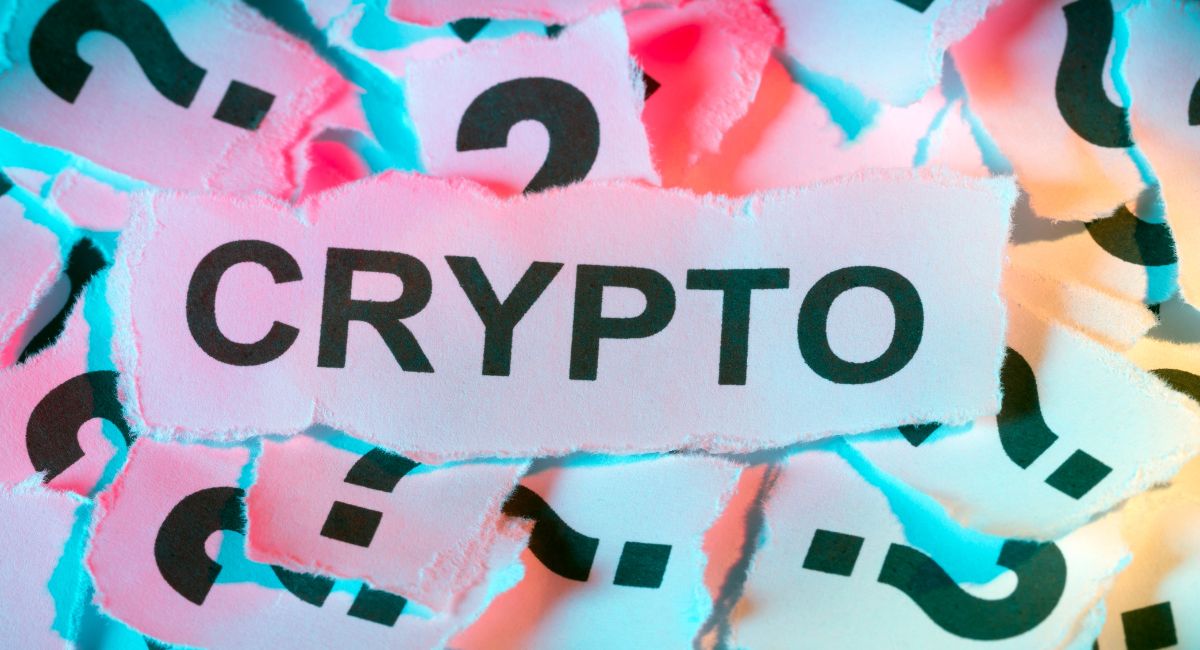What Are Privacy Coins: Top 10 Privacy Coins In 2023
Privacy coins are cryptocurrencies that use advanced cryptographic techniques to obscure the sender, recipient, and amount of each transaction. This makes it difficult for anyone to track the flow of funds on the blockchain.
There are a number of reasons why people might want to use privacy coins. Some people simply value their privacy and don’t want their financial transactions to be public knowledge. Others may use privacy coins to avoid government surveillance or to conduct illegal activities.
How Do Privacy Coins Work?
Privacy coins achieve anonymity in a number of different ways. Some privacy coins use a technique called ring signatures, which allows multiple people to send a transaction together and hide the identity of the true sender. Other privacy coins use a technique called stealth addresses, which creates temporary addresses for each transaction that make it difficult to link multiple transactions together.
Are Privacy Coins Really Private?
The privacy of privacy coins is a matter of debate. Some people believe that privacy coins are completely anonymous and that it is impossible to track the flow of funds on the blockchain. Others believe that privacy coins are not as private as they are made out to be and that law enforcement agencies can still track transactions if they have enough resources.
Also, read – Top New Cryptocurrency Coins That Are Gaining Popularity Since 2022
The Legality of Privacy Coins
The legality of privacy coins varies from jurisdiction to jurisdiction. In some countries, privacy coins are legal to use and trade. In other countries, privacy coins are considered to be a form of money laundering or terrorist financing and are therefore illegal.
Balancing Privacy and Regulatory Compliance
The use of privacy coins raises a number of challenges for law enforcement and regulators. On the one hand, privacy coins can be used to facilitate illegal activities. On the other hand, privacy coins also offer a valuable way for people to protect their financial privacy.
Law enforcement and regulators are trying to find a way to balance the need for privacy with the need to prevent crime. One way to do this is to focus on the use of privacy coins for illegal activities, rather than on the use of privacy coins in general.
I hate the term “privacy coin”
When Satoshi created Bitcoin, he called it peer to peer electronich cash, not a privacy coin. And that’s exactly what Monero is. P2P electronic cash for the world.
— Monero Prophet (@moneroprophet) July 22, 2023
Top 10 privacy coins in 2023:
Monero (XMR)
Monero is the most popular privacy coin and is known for its strong focus on anonymity. It uses a variety of privacy features, including ring signatures, stealth addresses, and ringCT (ring confidential transactions). This makes it difficult to track Monero transactions on the blockchain.

Zcash (ZEC)
Zcash is another popular privacy coin that offers a choice of two transaction types: transparent and shielded. Transparent transactions are visible to everyone on the blockchain, while shielded transactions are private. Zcash uses a privacy feature called zk-SNARKs (zero-knowledge succinct non-interactive argument of knowledge) to achieve this level of privacy.

Dash (DASH)
Dash is a privacy coin that also offers a number of other features, such as instant payments and masternodes. Instant payments allow users to send and receive Dash instantly, while masternodes provide a variety of services to the Dash network, such as processing transactions and storing the blockchain. Dash uses a privacy feature called PrivateSend to mix user funds together, making it more difficult to track their transactions.

Haven Protocol (XHV)
Haven Protocol is a privacy coin that is designed to protect the privacy of users who want to store and send value in stablecoins. Haven Protocol uses a privacy feature called zk-SNARKs to hide the sender, recipient, and amount of each transaction. Additionally, Haven Protocol allows users to mint Haven tokens, which are backed by a basket of assets, including Bitcoin and Tether.

Secret Network (SCRT)
Secret Network is a privacy-focused blockchain platform that allows users to create and use private smart contracts. Secret contracts are executed on a private sidechain, and the results are published to the public blockchain. This allows users to execute private transactions, such as financial transactions or voting, without revealing the details of the transaction to the public.

Firo Protocol (FIRO)
Firo Protocol is a newer privacy coin that uses a technique called shielded addresses to hide the sender, recipient, and amount of each transaction. Firo Protocol also offers a number of other features, such as instant payments and masternodes.

Horizen (ZEN)
Horizen is a privacy-focused blockchain platform that offers a variety of privacy features, including ring signatures, stealth addresses, and shielded transactions. Horizen also allows users to create private sidechains, which can be used for a variety of purposes, such as running private applications or storing private data.
Verge (XVG)
Verge is an older privacy coin that has been around for a few years. It uses a variety of privacy features, such as ring signatures and stealth addresses. However, Verge has been criticized for its lack of development and security.

Bytecoin (BCN)
Bytecoin is another older privacy coin that has been around for a few years. It uses a variety of privacy features, such as ring signatures and stealth addresses. However, Bytecoin has also been criticized for its lack of development and security.

MoneroV (XMV)
MoneroV is a fork of Monero that was created in 2018. It aims to improve on the privacy features of Monero by using a technique called Bulletproofs. However, MoneroV has been criticized for its lack of development and security.

It is important to note that privacy coins are not without their risks. They can be used for illegal activities, such as money laundering and tax evasion. Additionally, privacy coins are often more expensive and difficult to use than other cryptocurrencies.
Overall, the top 10 privacy coins in 2023 offer a variety of features and benefits that make them well-suited for privacy-minded users. However, it is important to carefully consider the risks before investing in any privacy coin.
Conclusion
Privacy coins are a controversial topic. Some people believe that they are a valuable tool for protecting financial privacy, while others believe that they are a threat to law enforcement and national security. The legality of privacy coins also varies from jurisdiction to jurisdiction.
As the use of privacy coins continues to grow, it is likely that we will see more debate and discussion about the balance between privacy and regulatory compliance.
Stay informed with daily updates from Blockchain Magazine on Google News. Click here to follow us and mark as favorite: [Blockchain Magazine on Google News].
Get Blockchain Insights In Inbox
Stay ahead of the curve with expert analysis and market updates.
latest from tech
Disclaimer: Any post shared by a third-party agency are sponsored and Blockchain Magazine has no views on any such posts. The views and opinions expressed in this post are those of the clients and do not necessarily reflect the official policy or position of Blockchain Magazine. The information provided in this post is for informational purposes only and should not be considered as financial, investment, or professional advice. Blockchain Magazine does not endorse or promote any specific products, services, or companies mentioned in this posts. Readers are encouraged to conduct their own research and consult with a qualified professional before making any financial decisions.

 Bitcoin
Bitcoin  Ethereum
Ethereum  Tether
Tether  Solana
Solana  USDC
USDC  XRP
XRP  Dogecoin
Dogecoin  Lido Staked Ether
Lido Staked Ether  TRON
TRON  Cardano
Cardano  Toncoin
Toncoin  Shiba Inu
Shiba Inu  Wrapped stETH
Wrapped stETH  Wrapped Bitcoin
Wrapped Bitcoin  Avalanche
Avalanche  WETH
WETH  Chainlink
Chainlink  Bitcoin Cash
Bitcoin Cash  Sui
Sui  Polkadot
Polkadot  LEO Token
LEO Token  USDS
USDS  Uniswap
Uniswap  Litecoin
Litecoin  NEAR Protocol
NEAR Protocol  Aptos
Aptos  Wrapped eETH
Wrapped eETH  Pepe
Pepe  Bittensor
Bittensor  Internet Computer
Internet Computer  Artificial Superintelligence Alliance
Artificial Superintelligence Alliance  Dai
Dai  Monero
Monero  Stellar
Stellar  Ethereum Classic
Ethereum Classic  Ethena USDe
Ethena USDe  WhiteBIT Coin
WhiteBIT Coin  Stacks
Stacks  POL (ex-MATIC)
POL (ex-MATIC)  Aave
Aave  dogwifhat
dogwifhat  First Digital USD
First Digital USD  OKB
OKB  Cronos
Cronos  Filecoin
Filecoin  Arbitrum
Arbitrum  Injective
Injective  Immutable
Immutable 



